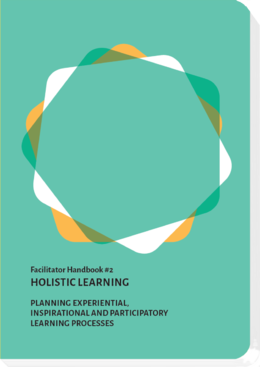Learning to Learn
![]() N. Zimmermann, M. Gawinek-Dagargulia
N. Zimmermann, M. Gawinek-Dagargulia
Contents
Personal Competence
For self-responsible action people need to perceive themselves as agents of change. They then assume responsibility for themselves and for others. Skills for planning and for following their plans are the conditions for their next steps, taking concrete action. Third, reflective competency is crucial for successful action, like the capacity to observe and evaluate challenges, requirements, or options.
All of these aspects are not born and need to be trained. Your seminar room is the perfect training field for this task. Like all good training it starts with a good trainer: Are you willing to give your participants opportunities to overtake initiative? Are you tolerant enough regarding unexpected developments or possible mistakes? Are you prepared for changes of your plans?
If you can answer these questions with "yes", this will help you to make the right decisions under real life conditions such like limited time, conflicts in a group, or too much workload. Here facilitators face often a dilemma: Giving their participants place for experimentation or better teaching more topical knowledge for the price of less experimentation. However, at the end we should not conduct traditional teaching. Here are some ideas, how you can show your cooperative attitude toward your participants in your plans made before the seminar started and during your moderation of the common process.
Ways to engage participants before and during...
Flexible planning and moderation |
|
Decision-making |
|
Reflection and feedback |
|
Co-creation in the learning space |
|
Addressing Self-learning Skills
Like mentioned before, the skills for reflection, goal-setting or decisionmaking are condition for successful action. Facilitators offer learners spaces and methods where they can practice and experience these. The following ideas might help you to put this ideal more concrete into practice:
- Learners reflect on their learning styles and preferences, and gain awareness of their conditions for successful learning
- They become familiar with planning skills: learning plans, assessment, checklist work
- Training an orientation toward opportunities and solutions (in contrast to analyzing problems)
- Practicing goal-setting methods
- Using learning diaries or portfolio tools for (self-)documentation
- Using self-assessment tools for evaluation
Related
Related:
- Checklist: Possible ways to activate participants
- Tips for Increasing the Participants' Levels of Ownership and Involvement






